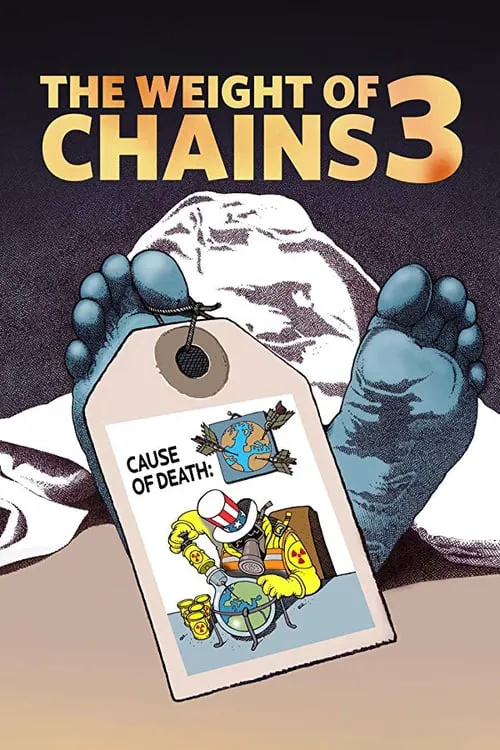The Weight of Chains 3

Plot
The Weight of Chains 3 is an informative documentary that delves into the intricate relationships between governments, corporations, and special interest groups that have devastating effects on the health and livelihoods of people worldwide. Director and narrator Boris Malagurski masterfully weaves together historical and contemporary narratives to illustrate how the intersection of military spending, commercialization, and politics can have a profound impact on global stability and human well-being. The film begins by examining the historical context of the Cold War and its aftermath. The author notes how the rise of the military-industrial complex, fueled by a culture of militarism and the pursuit of profit, led to an exponential increase in military spending. This phenomenon, in turn, created new opportunities for industries and governments to collaborate, with far-reaching consequences for public health and the environment. One of the film's case studies is Serbia, a country that has been grappling with the aftermath of the Kosovo War. Malagurski highlights the environmental devastation caused by military operations and the subsequent proliferation of toxic waste, which has led to high rates of cancer and birth defects among the local population. This example serves as a stark reminder of the human cost of conflict and militarization. Next, the film shifts its focus to Cuba, often perceived as an outlier in the Latin American context. However, the author argues that Cuba's situation is, in fact, a manifestation of the larger global issues at hand. Under the US embargo, Cuba has struggled to access essential medicines, medical supplies, and other critical resources, resulting in a significant decline in the quality of healthcare. This situation is symptomatic of a broader pattern, where governments and corporations prioritize their interests over the well-being of their citizens. The Chilean example serves as a poignant illustration of the complex interplay between politics, economics, and health. Malagurski explores how the CIA-backed coup in 1973, which overthrew the democratically elected government of Salvador Allende, had a profound impact on the country's healthcare system. The authoritarian regime's emphasis on economic growth and militarization came at the expense of public health, leading to a decline in maternal and child healthcare outcomes. In Italy, the film examines the role of the military-industrial complex in shaping the country's healthcare policies. Malagurski notes how the Italian government's decision to prioritize military spending and economic growth over public healthcare has resulted in inadequate funding for medical research, equipment, and personnel. This has, in turn, exacerbated the country's existing health disparities and created a crisis in its healthcare system. The Bolivian example serves as a chilling reminder of the catastrophic consequences of unchecked corporate power. In 2012, the Bolivian government nationalized the country's oil and gas industries, which had been controlled by foreign corporations. However, this move was met with significant resistance from the corporations and their allies, including the US government. The subsequent economic sanctions and military pressure led to widespread economic hardship and social unrest, further compromising the country's public health. Throughout The Weight of Chains 3, Malagurski weaves together these various narratives to construct a compelling argument about the interconnected nature of militarism, commercialization, and politics. By highlighting the ways in which governments and corporations collaborate to maintain their power and profits, the film challenges viewers to think critically about the world around them. Ultimately, it serves as a call to action, urging audiences to hold their leaders accountable for the decisions that shape their lives and the planet.
Reviews
Recommendations


